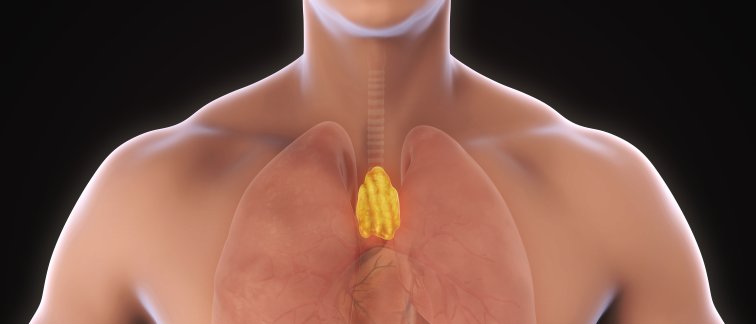It is an organ no larger than a walnut, which was believed to have no function in adults. We're talking about the thymus. Recent research published in the New England Journal of Medicine reveals that this small organ is more important than previosuly thought. Associate professor and immunologist Joke den Haan shares her insights in an interview with NPO Radio 1's 'De Nieuws BV.'
Dr. den Haan: 'The thymus is an extremely small organ located just below the breastbone, above the heart, and near major blood vessels. For 60 years, we have known that the thymus is a crucial organ during childhood, serving as an educational institution for our immune cells called T-cells. The thymus teaches these immune cells what is part of oneself and should not be attacked and what is foreign and should be targeted. After puberty, the organ gradually shrinks and becomes less active. We even believed it had no function in adults'.
What do we observe in people without a thymus?
In some surgeries, the thymus is removed, a procedure known as thymectomy. Dr den Haan explains: 'When this is done in very young individuals, it has profound negative consequences for their immune systems. However, until recently, we had limited insight into its effects on adults. A recent study conducted by Kameron et al. (2023) focused on adults who underwent open-heart surgery, with one group having a thymectomy and the other not. Five years after the surgery, these groups were compared. The group that had a thymectomy had twice as many cases of cancer and twice as many deaths. Hence, the idea is emerging that perhaps the thymus still plays a role in adults.'
How should we interpret these results?
'This is an initial indication that something significant might be at play. More research is needed to draw definitive conclusions,' says Dr. den Haan.
Listen to the radio segment from NPO Radio 1 (in Dutch) here.
Note: Amsterdam UMC researchers were not involved in the publication.
Keep listening to our AII members:
Brain organoids to study infectious diseases (March 2023)
Pioneering on the future of skin organoids (March 2023)
Uitgedokterd:illustrative podcast about 40 years of hiv in the Netherlands (January 2023)

